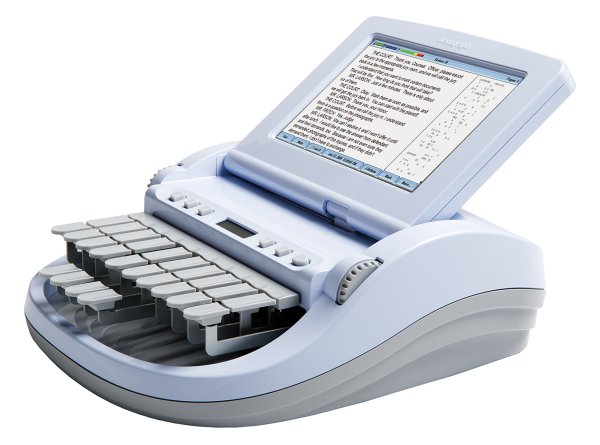The Link Between court reporting and Fair Trial Outcomes
The Link Between court reporting and Fair Trial Outcomes
Blog Article

The Future of Court Coverage: Advancements and Trends Shaping the Sector
As you check out the future of court coverage, you'll notice a change driven by innovation and innovation. Real-time transcription and AI applications are improving just how legal procedures are recorded. With remote depositions obtaining traction, the landscape is developing swiftly. It questions concerning the role of court reporters and the abilities they'll require progressing. What does this mean for experts in the area? The solution could surprise you.
The Effect of Artificial Knowledge on Court Reporting
As artificial intelligence continues to develop, it's improving the landscape of court coverage in methods you could not expect. AI can analyze huge amounts of lawful text, aiding you determine relevant precedents and streamline situation prep work.
Furthermore, AI can improve the prep work procedure by offering predictive analytics, which can assist you prepare for trial outcomes based on historical information. With AI dealing with routine tasks, you can focus a lot more on your core duties, such as guaranteeing accuracy and providing important lawful understandings.
Real-Time Transcription: Enhancing Precision and Performance
Real-time transcription has actually revolutionized the court reporting procedure, making it easier than ever for you to catch exact documents right away. With innovative modern technology, you can now provide immediate transcripts throughout hearings or depositions, guaranteeing that all celebrations have access to necessary info without hold-up. This immediacy not only enhances the overall efficiency of the legal process but additionally permits you to concentrate on the dialogue, instead of scrambling to capture up.
As you make use of real-time transcription, you'll see a significant decrease in mistakes, many thanks to automated proofreading tools that flag inconsistencies as you type. Furthermore, clients value the capacity to assess records promptly, making it possible for quicker decision-making and smoother procedures. By embracing this development, you're not simply enhancing your workflow; you're establishing a new criterion in court reporting that prioritizes precision and effectiveness. This forward-thinking approach placements you at the leading edge of the evolving lawful landscape (court reporting).
The Increase of Remote Depositions

With the expanding demand for flexibility in legal process, remote depositions have arised as a game-changer in court reporting. You can now take part in depositions from anywhere, removing traveling time and costs. This benefit enables you to concentrate on what absolutely matters-- preparing your situation.
Remote depositions make use of innovative technology, allowing real-time interaction and paper sharing. You can involve with witnesses and attorneys perfectly, ensuring that every person continues to be linked regardless of their physical location. This approach not only conserves time but also expands your pool of professional witnesses, as geographical obstacles come to be much less of a problem.
As remote depositions gain appeal, it's vital to adjust to this new standard. Familiarize yourself with the required tools and procedures to ensure a smooth experience - court reporting. Accepting this innovation can offer you a competitive side, permitting you to navigate the ever-evolving landscape of legal process efficiently
Digital Courtrooms: Transforming the Lawful Landscape
As you step right into the world of electronic courts, you'll notice just how digital hearing modern technology is reshaping lawful proceedings. This change not only makes accessibility simpler yet likewise enhances transcription precision, making sure every word is captured appropriately. Embracing these innovations can significantly boost the effectiveness of the lawful procedure.
Virtual Hearing Modern Technology
While the typical court room setup has actually long been a sign of justice, the increase of online hearing innovation is reshaping how lawful proceedings official site are carried out. In addition, virtual hearings can improve involvement, allowing witnesses and specialists to offer testimony without the restraints of location. As you adjust to these changes, you'll see that digital hearings keep the stability of the legal procedure while welcoming innovation, ultimately changing the method justice is served in the modern-day world.
Enhanced Transcription Precision
Improved transcription precision is reinventing the legal area, making court procedures much more reputable than ever. With innovations in speech recognition technology and AI-driven devices, you can expect to see a substantial reduction in transcription mistakes. These advancements not only record every word spoken yet likewise make up nuances in tone and context, improving overall comprehension. Because of this, crucial details aren't shed in translation, guaranteeing that the honesty of the legal process is maintained. Real-time transcription permits you to gain access to exact records instantaneously, helping with smoother interaction throughout tests. Accepting these modern technologies implies you're tipping right into a future where clarity and precision in lawful documents are paramount, ultimately benefiting all events involved in the judicial system.
The Duty of Court Reporters in Virtual Hearings
Stenotype reporter play a vital function in virtual hearings, ensuring that every word talked is properly recorded and recorded in real-time. As a stenotype reporter, you assist in interaction between parties, making complex lawful procedures accessible. Your experience in legal terminology and the capacity to swiftly adapt to different speakers are important in this digital setting.
During virtual hearings, you keep a steadfast focus, also in the middle of technical difficulties or distractions. You give a clear, written record that can be referenced later on, assisting judges, lawyers, and clients recognize the procedures. Your abilities in steering various platforms assure that you can flawlessly integrate into any kind of virtual arrangement.
Additionally, you also help maintain the stability of the judicial procedure, verifying that every participant's voice is listened to. By doing this, you not only enhance the performance of legal proceedings however also add to the overall fairness and openness of the justice system.
Technologies in Paperwork and Record Maintaining
As modern technology advances, developments in documents and record maintaining are transforming how stenotype reporter capture and handle legal transcripts. You'll go to these guys locate that digital tools enable quicker and much more accurate transcription, decreasing the opportunities of human error. Cloud-based storage space services allow you to firmly store and access records from anywhere, making partnership with lawful groups smooth.
Artificial intelligence is likewise playing a substantial duty, assisting with real-time transcription and even using clever editing and enhancing features. These innovations not just boost performance yet additionally assure that you can give top notch documentation in a fast-paced legal environment.
Moreover, the combination of voice recognition software program simplifies the procedure, enabling you to focus much more on the nuances of the proceedings as opposed to just keying. By welcoming these technologies, you're placed to raise your skills and meet the demands of modern-day court reporting properly.
Future Abilities and Educating for Court Reporters
While innovation reshapes the landscape of lawful process, it's necessary for court press reporters to adjust by obtaining new skills and training. You'll need to acquaint on your own with sophisticated transcription software and electronic reporting tools to remain competitive. Embracing expert system and real-time captioning will certainly improve your efficiency and precision.
Furthermore, creating strong research and analytical abilities is important. You'll typically encounter complicated legal jargon and treatments, so comprehending lawful ideas will develop your coverage. On the internet training courses and workshops can supply valuable insights right into these areas.
Networking with other experts will certainly also assist you remain updated on market fads. Joining organizations or attending seminars can reveal you to new innovations and ideal practices.
Ultimately, honing your social abilities will enhance communication with attorneys and clients. By focusing on these areas, you'll position on your own for success in the advancing field of court reporting.
Often Asked Inquiries

What Qualifications Are Needed to Become a Stenotype Reporter Today?
To become a court reporter today, you'll require a secondary school diploma, specialized training in court coverage, and certification, typically with a nationwide exam. Solid keying skills and attention to detail are essential for success.
How Can Court Reporters Stay Updated With New Technologies?
To remain upgraded with new technologies, you need to participate in workshops, join professional companies, click here for info and sign up for relevant magazines. Connecting with peers and taking part in online discussion forums can likewise keep you notified regarding the most up to date developments.
What Is the Ordinary Income for Court Reporters Currently?
The average wage for court press reporters varies by area and experience, however you can anticipate around $50,000 to $70,000 every year. In some areas, experienced press reporters can earn a lot more, especially with specialized abilities.
Are There Job Opportunities for Court Reporters in Non-Legal Area?
Yes, there are task chances for court reporters in non-legal fields. You can find functions in shut captioning, transcription solutions, and media, where your skills in capturing spoken language are very valued and demanded.
Just How Does Court Reporting Differ in Different Nations?
Court reporting varies significantly throughout countries. You'll discover distinctions in terms, technology, and lawful systems. Some countries emphasize digital coverage, while others still count on standard stenography approaches for recording spoken words.
Report this page